What does Rishi Sunak mean when he says Saturday’s pro-Palestine march in London is ‘disrespectful’? The Prime Minister was responding to the announcements from Metropolitan Police chief Sir Mark Rowley that his force would not be banning the demonstration in London. Sunak said:
This is a decision that the Metropolitan Police Commissioner has made, and he has said that he can ensure that he safeguards remembrance for the country this weekend as well as keep the public safe. Now, my job is to hold him accountable for that and we’ve asked the police for information on how they will ensure that this happens… My view is that these marches are disrespectful and that’s what I’ll be discussing with the Police Commissioner later today.
It is quite remarkable that the core of the Prime Minister’s argument against the march is that it is ‘disrespectful’. There are plenty of other reasons he might have cited: that some of those on the marches we’ve seen in recent weeks have carried placards threatening Jews, calling for the annihilation of Israel, and comparing Israelis to the Nazis. This sort of marching is more than disrespectful: it is actively inciting violence against Jews, to the extent that many say they feel unsafe in central London and are actively avoiding the capital at weekends, or encouraging their own children to travel to school in plain clothes rather than the identifiable uniforms of Jewish schools.
Perhaps he fears that the march will inflame tensions and further frighten Jews, or lead to violent clashes with the police. Both would be described far better using words other than ‘disrespectful’.
Another reason might be the risk of memorials to the war dead being defaced. This has happened repeatedly in Rochdale, where ‘free Palestine’ was daubed on the town’s war memorial, and poppy wreaths removed in a separate incident. Again, this is more than ‘disrespect’: it is criminal damage.
What ministers seem particularly aerated about is that these marches are taking place on Armistice Day, though the organisers insist the route doesn’t go near the Cenotaph and the event is after the two minutes’ silence at 11am on Saturday. Neither are they taking place on the much bigger Remembrance Sunday. It might indeed be ‘disrespectful’ to march on Armistice Day at all, but is it illegal? The law doesn’t militate against people who make noise during silences at football matches, or against those who insist on not wearing a poppy or wearing a white poppy to make their own point which some others might find disrespectful. It doesn’t prevent preachers disrespecting people in town centres by proclaiming that unless they repent of their sins, they’ll go to hell. Nor does it prevent people from telling those preachers that they’re talking total nonsense. Our law doesn’t mandate people to behave in the wisest way. Sometimes politicians get confused, often getting caught up in a social media storm and calling for the sacking of someone whose opinions they disagree with. Perhaps the Prime Minister is struggling with that confusion.
There are without doubt groups attending these marches who are profoundly troubling. Some are apologists for Hamas, others are anti-Semitic. But alongside them are people who have been upset by the scenes in Gaza and who, however ill-informed and lacking in nuance, are perfectly entitled to express their concern about what is happening. We don’t legislate against people who struggle with nuance – which some members of Sunak’s own government might see as a relief too.
Sunak should remember that his party will not be in power forever
There is a risk that those who are marching in good faith see a ban on their freedom of expression as a sign that the government really is clamping down on those who want to support ordinary Palestinians. There are few things more galvanising than the suspicion you are being silenced by a powerful group: conspiracy theorists tend to make up this suspicion, rather than just point to the real actions of a government.
Besides this, there is a question about how appropriate the government’s attempts to influence the police are. The Prime Minister has previously emphasised the operational independence of the police, but today he said it was his job to ‘hold them accountable’. His government and the Met have become locked in a stand-off that is as much about who would be to blame for any violent clashes on Saturday as it is about the powers the police does or should have. But Sunak should remember that his party will not be in power forever, and he cannot guarantee that his definition of ‘disrespectful’ would be the same as anyone else’s.
Got something to add? Join the discussion and comment below.
Get 10 issues for just $10
Subscribe to The Spectator Australia today for the next 10 magazine issues, plus full online access, for just $10.


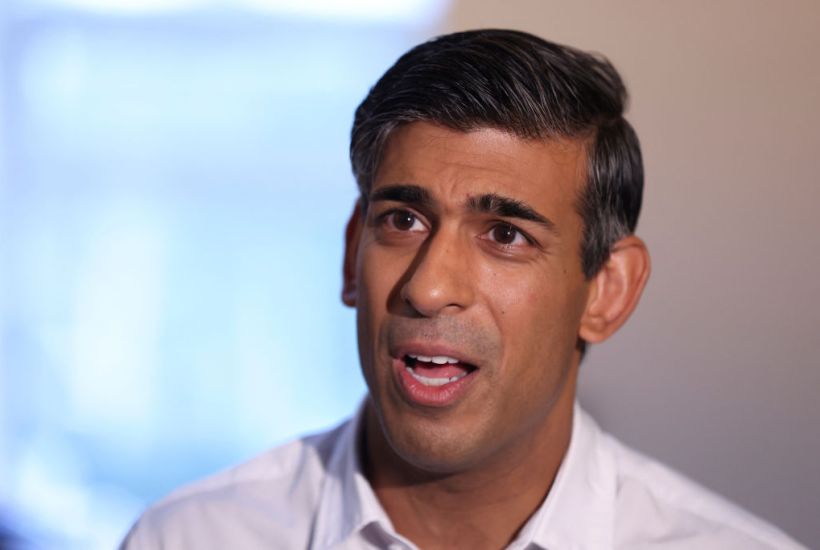
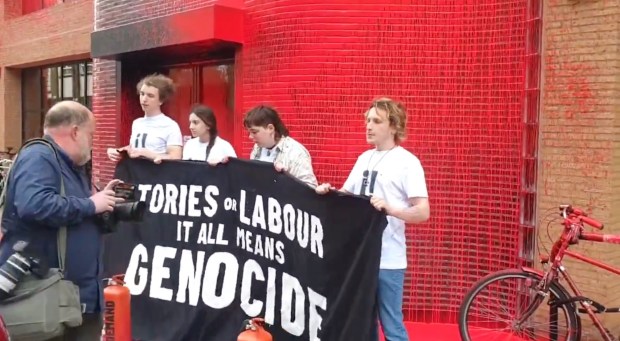
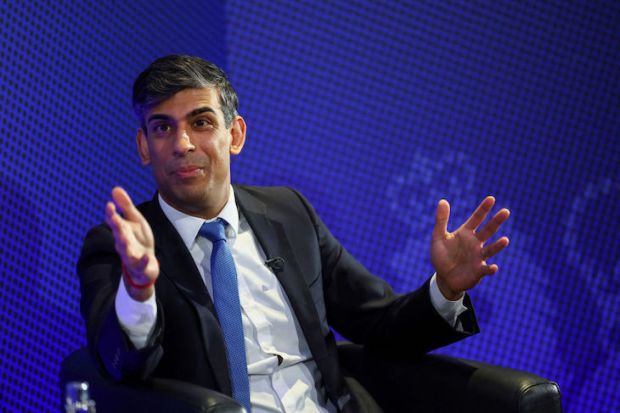
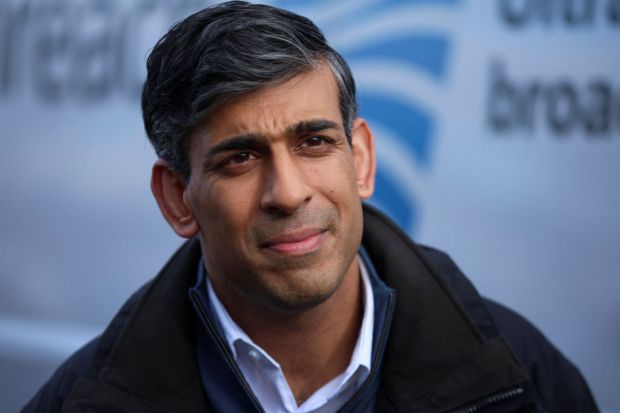
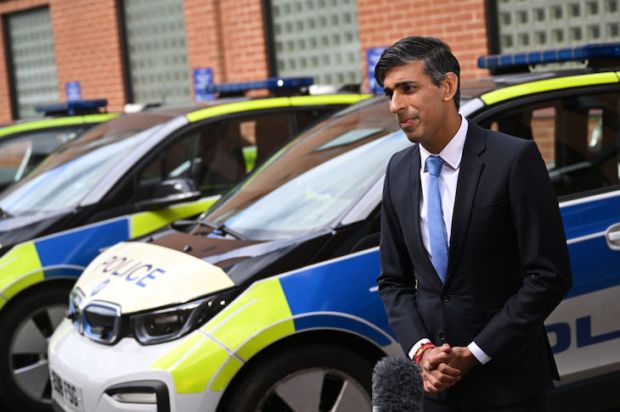
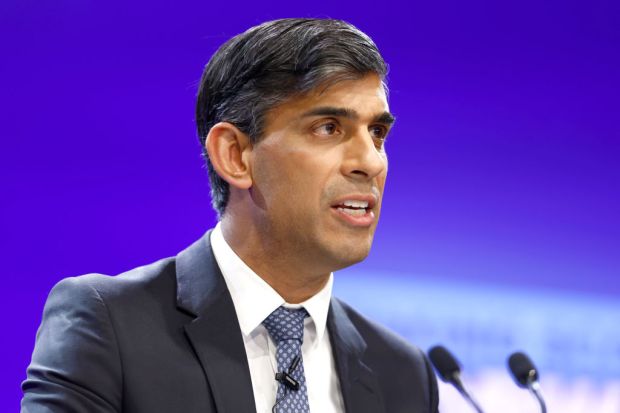
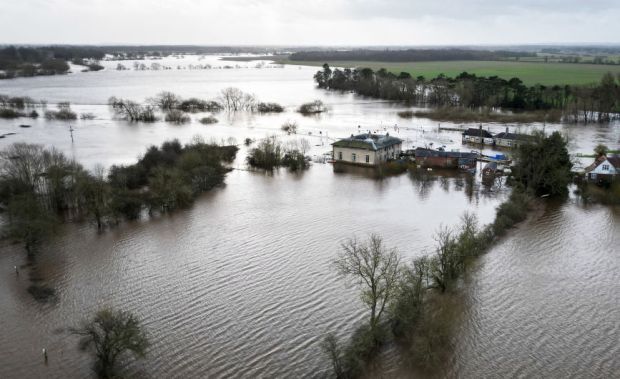












Comments
Don't miss out
Join the conversation with other Spectator Australia readers. Subscribe to leave a comment.
SUBSCRIBEAlready a subscriber? Log in